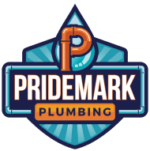How can an appliance that is supposed to be so convenient be so frustrating? That’s probably what our clients in Surprise are thinking when they call us because their dishwasher isn’t draining. If you’ve already taken the step of running your dishwasher a second time, just in case it got cut off during the drain cycle, and you still have the problem, then you probably need a professional’s help.
Don’t believe the internet hype about putting vinegar and baking soda into the dishwasher. For most problems, this won’t help at all, and when there is a clog there are cleaner, better ways to remove it. Here’s what could actually help your dishwasher drain properly.
Empty the Garbage Disposal
Your dishwasher drains out through the same pipe that your garbage disposal is in. So, if you’ve been putting starch and fats down there, or not cleaning food out from it properly, then you may have created a complete or partial clog in the drain. Then, the water from the dishwasher can only drain out very slowly, or not at all. To fix this one, you need to empty out the clog or partial clog. This can be as simple as running the disposal. Or, you may need a plumber to come in and get rid of a clop in the trap.
Once the disposal is clear, refamiliarize yourself with what you can put down the disposal and how to clear it out afterwards. Start running it for 15 extra seconds and then flush it with some hot water.
Here are foods that you should avoid putting down the garbage disposal:
- Grease: Garbage disposals cannot do anything to help process grease. Instead, all you are doing is lining your pipes with a substance that can cause clogs.
- Oil: Just like grease, oil is just causing problems in your pipes. Your garbage disposal will not help with it.
- Shells from seafood: Garbage disposals are not meant to process clam, lobster and oyster shells. They are too tough and can cause serious clogs.
- Eggshells: One or two eggshells may go down fine, but if you are making a ton of egg salad, and dropping several shells down there, they may cause a clog. Take it slow and rinse properly or avoid putting shells down the disposal at all.
- Vegetable peels: Many vegetable peels are too starchy to break down in the garbage disposal. Potato and carrot are both good examples.
- Corn husks: Garbage disposals can rarely chop corn husks up well enough that they will not cause clogs in your pipe. They are too rigid and starchy.
- Anything that isn’t food: Of course, you should not put any non-food items down your drain.
Also, if it turns out that the clog was actually in the dishwasher drain line, you may want to redouble your efforts to rinse dishes and remove food bits before you place them in the dishwasher. It cannot handle the same volume or types of food that a garbage disposal can.
What if You Don’t Have a Disposal?
If you don’t have a garbage disposal in your sink to create a clog, then you do have an air gap. It is created by a small steel cylinder placed inside the sink right near the faucet. The whole idea is to prevent clogs by preventing airlocks. On the other hand, the airlock itself sometimes gets clogged with debris from the sink and creates a clog of its own.
Fixing this one is relatively simple. You take out the air gap. Look for debris and wash it out. You can use a brush or just a spray of water (from another sink) will work.
Problems with the Dishwasher Itself
If you’ve exhausted the above options, then it is most likely that some part of your dishwasher is the problem. While you can attempt DIY repairs on these parts, it’s more likely that you’re going to need a plumber. Here are some of the possibilities:
- Drain screen: A clog in the drain screen can prevent water from draining.
- Filter: Different dishwashers have different filters. Depending on the design of yours, it may have developed a clog or may need to be cleaned out.
- Drain hose: The dishwasher has a drain hose leading to the main drain. If it is clogged it can keep the dishwasher from draining.
If you’re in Surprise and your dishwasher is not draining completely, then you can call us at Pridemark Plumbing to help solve the problem properly.

